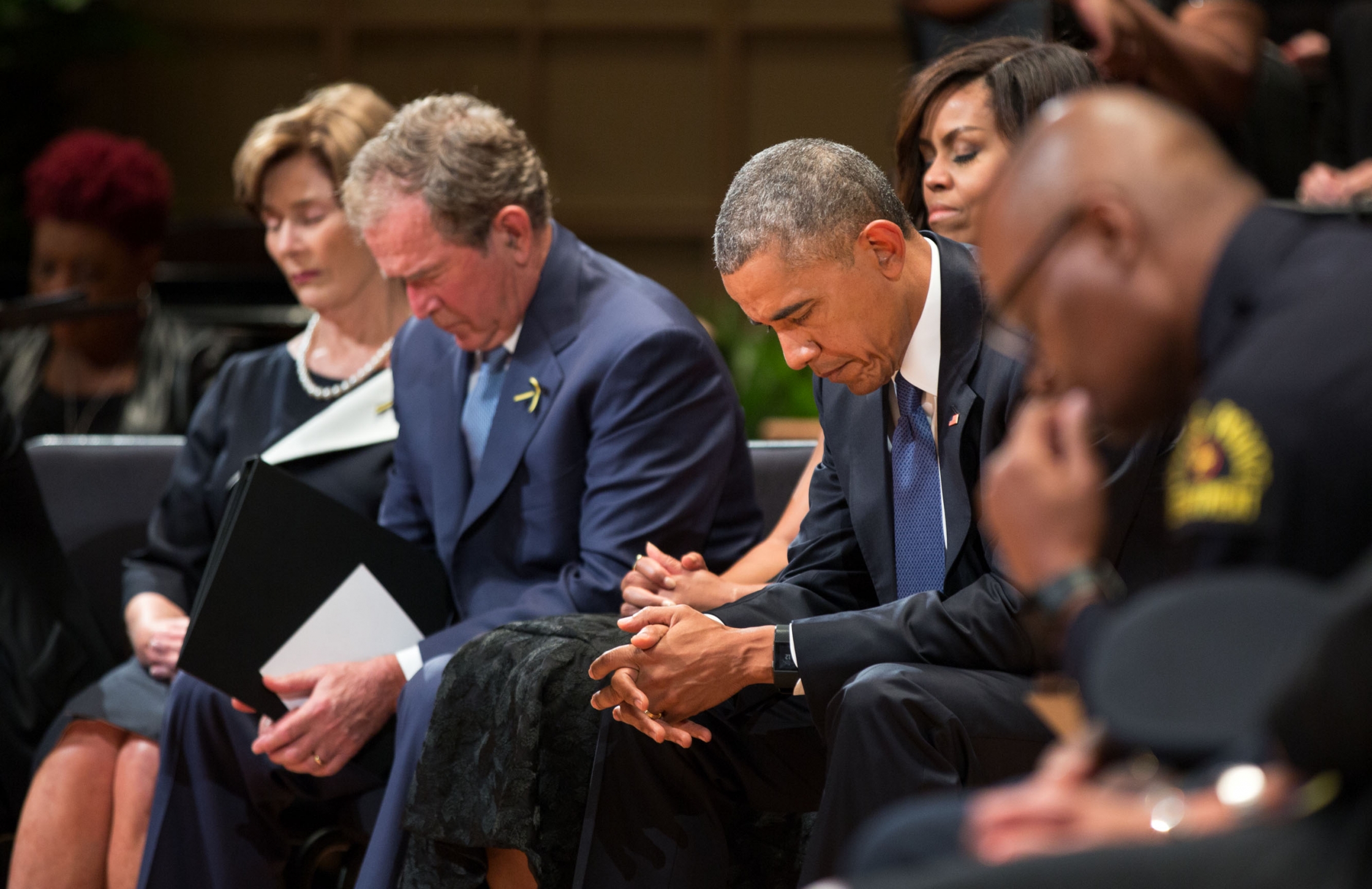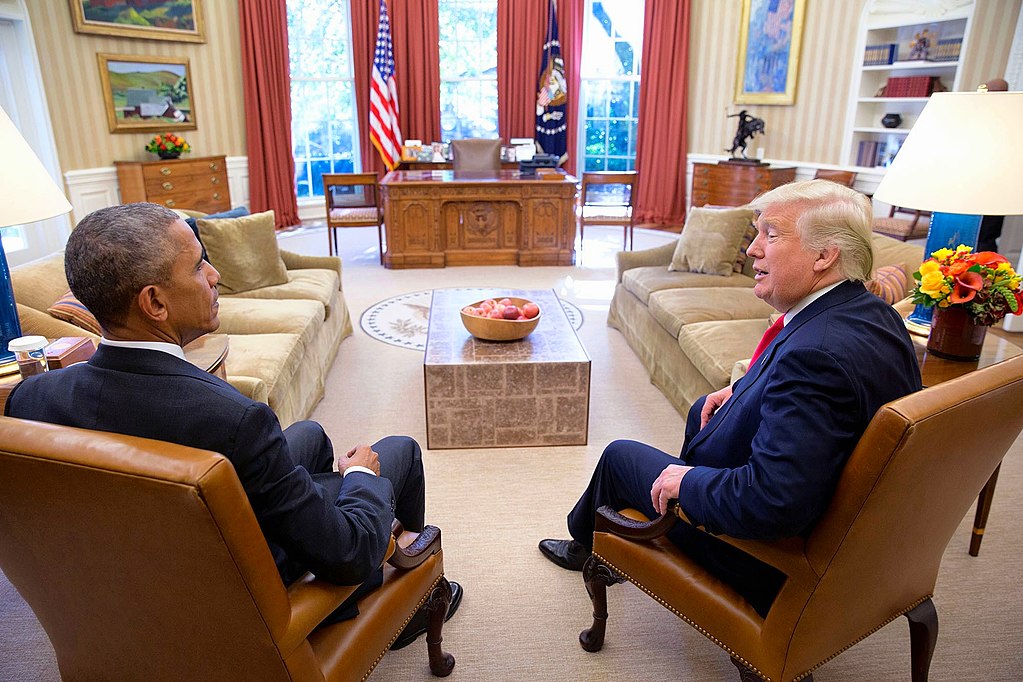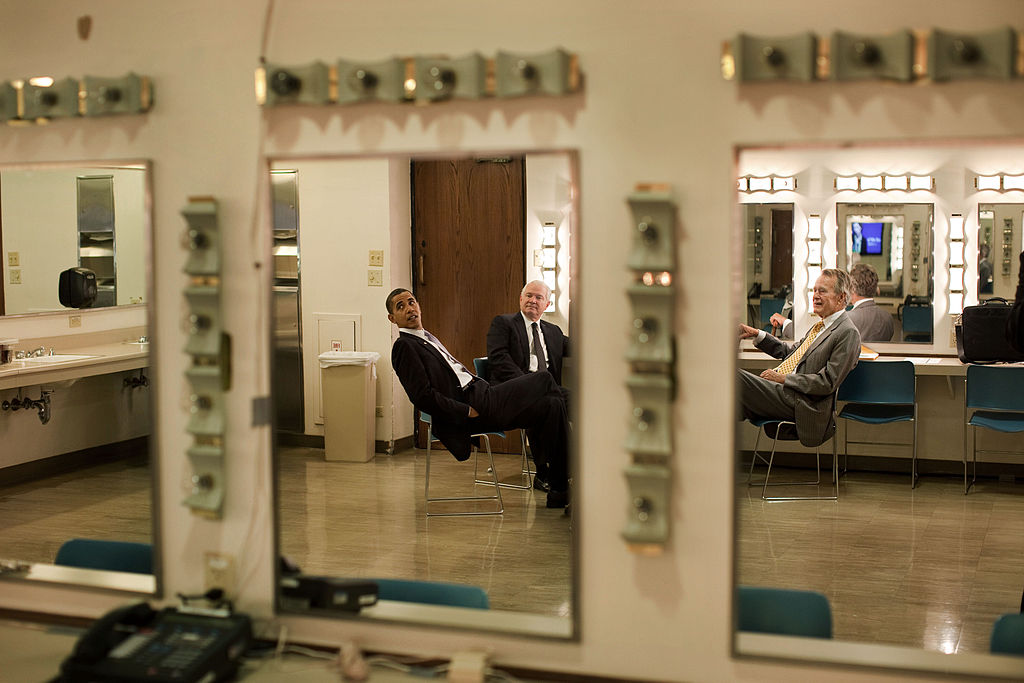On the morning of March 11, 1947, President Harry Truman typed a letter to former president Herbert Hoover. Truman’s letter thanked Hoover for his report on food shortages in Germany and Austria, Hoover’s latest contribution to post-World War II reconstruction efforts.
Despite vast political differences, the two presidents fostered an outstanding professional relationship and an enduring friendship. Truman and Hoover shared a deep sense of American moral authority that helped them continue the longstanding tradition of presidential courtesy across party lines.
Former president Barack Obama has followed in the footsteps of many of his predecessors by largely removing himself from politics post-presidency, despite serious accusations from Trump. However, some feel that the sense of American moral authority that Truman and Hoover shared has eroded under President Trump, which could catalyze the next historical break of presidential courtesy.
Not all former presidents maintained this courtesy. Nixon and Carter spoke out against Reagan and George W. Bush, respectively, when they had grave concerns about the United States’ role in the world. In light of Trump’s statements on Russia, North Korea, and U.S. allies in Europe, it remains unclear whether the United States will endure as a beacon of morality and hope for the world. Like Nixon and Carter, Obama may soon choose to speak out publicly against Trump.
Five months later after typing his letter to Hoover, Truman appointed him chairman of the Commission on the Reorganization of the Executive Branch of Government, better known as the Hoover Commission. He gave the former president the substantial responsibility of adapting the executive branch for efficiency and efficacy in the postwar era. In June of 1949, Congress approved the Reorganization Act, an effort spearheaded by the Hoover Commission that marked the beginning of the government’s postwar transformation. This was characterized by administrative changes ranging from shifts in the president’s chain of command to the restructuring of cabinet departments.
Respect, adoration, and magnanimity defined Truman and Hoover’s relationship. As dignified members of one of the world’s most exclusive fraternities, the two men shared a deep understanding of the responsibilities and pressures of the presidency. This united them and enabled them to work to improve the lives of millions across the globe.
The shared experiences and exclusivity of the presidency have often brought presidents together in public relationships centered around benevolence and courtesy. “Post-presidents have a deep respect of the office they served, as well as an awareness of the massive expectations and responsibilities the president has and the limitations he has encountered to fulfill these expectations and responsibilities,” explained Purdue presidential historian Kathryn Brownell in an email to the HPR.
Indeed, Truman’s bonds to the presidential club continued after he left office in 1952. Twelve years after Truman left the White House, President Lyndon B. Johnson summoned then 81-year-old Truman to share credit in the landmark passage of the Medicare Act. Peering over Johnson’s shoulder, the former president watched him sign the bill into law at Truman’s presidential library in Independence, Missouri. Johnson later presented the first Medicare card to Truman—and the second to Truman’s wife, Bess.
On that sweltering midsummer day, Johnson called Truman the “real daddy of Medicare.” In 1945, 1947, and 1949, Truman badgered Congress to support such a program. Ruthless critics such as the American Medical Association, who stoked fears of communism by labeling Truman’s efforts “socialized medicine,” shut him down each time. While Truman’s opponents killed his proposal in 1950, his vision of a national healthcare system endured. First devised in 1957 by Congressman Aime Forand, Medicare served as an important first step towards implementing Truman’s vision of national health insurance. In 1960, President Kennedy championed Medicare and strived towards its passage. After Kennedy’s assassination in 1963, Johnson became the torchbearer of Medicare. However, it wasn’t until liberal Democrats took control of Congress in 1964 that Medicare made measured progress toward enactment.
At the bill’s signing in July 1965, Johnson honored Truman for “[planting] the seeds of compassion and duty which have today flowered into care for the sick, and serenity for the fearful.” Truman was so honored that he called the signing “the highlight of my post-White House days.” In the successful passage of Medicare, Johnson and Truman were able to celebrate the institution of the American presidency as well as their shared hopes for American leadership on healthcare.
While generosity and courtesy between presidents span areas as consequential as domestic and foreign policy, they often manifest themselves in informal advising. When President-elect Bill Clinton paid Ronald Reagan a courtesy visit weeks before his inauguration, he received pragmatic advice. In 1981, Reagan became the first president to perform a military salute. The gesture quickly became an expectation of all presidents. Reagan, with experience as both an Air Force captain and a professional actor, knew the importance of the perception of power. He told Clinton, who saluted military personnel as president-elect, that he needed to firm up the decisiveness of his salute. Reagan spent an hour patiently teaching Clinton the proper motion. Clinton and Reagan’s relationship epitomized the ideals of civility and generosity between presidents.
Obama’s silence on Trump exemplifies the tradition of courteous presidential relationships today. Some theorize this is a nod to George W. Bush’s silence during Obama’s tenure, despite their ideological differences. Bush’s silence might, in turn, honor the humility and grace of George H.W. Bush’s relationship with Clinton after a bitter election.

Former President Bush and then-President Obama mourn together after the Dallas shootings in 2016.
However, not all presidential relationships have been courteous. “In the modern presidency, there’s been a tremendous attempt by former presidents to keep lines of communication open to the White House, and to avoid damaging what they think is the national reputation of the United States, by taking on a sitting president.” David Farber, presidential historian and Kansas University professor, told the HPR. Still, Farber maintains that public disagreements have occurred, noting that the rarity of these instances makes them intriguing.
Despite the rarity of public tensions between former and sitting presidents, former presidents have made their opinions known to the general public when a fundamental dispute about America’s global image emerges. For instance, Nixon made his opinions on the Cold War widely heard during Reagan’s tenure as president. In 1984, Nixon published a book entitled “Real Peace.” The work defended the détente policies of Nixon and his successors, Ford and Carter, while criticizing Reagan-era policies he deemed harmful to the U.S. relationship with the Soviet Union. Nixon implied the Reagan administration was wrong to pursue policies that risked undermining improvements in U.S.-Soviet relations. The book made a case for “real peace” as the proper objective of U.S. foreign policy and served as a broader criticism of what Nixon deemed an overly aggressive foreign policy by Reagan.
Although Nixon’s criticism of Reagan remained largely ideological, Carter’s comments on W. Bush’s actions in Iraq were blunt. In May 2007, Carter blasted the Bush administration as the “worst in history” in terms of foreign policy. Carter, a fierce opponent of the Iraq War, denounced Bush’s decision to “go to war with another nation militarily, even though our own security is not directly threatened.” Carter characterized Bush’s action as an “overt reversal of America’s basic values.” Like Nixon, Carter spoke out publicly when he felt America’s role in the world was at stake.
These instances of former presidents criticizing sitting presidents raise the question: will Obama break his silence on Trump? According to Farber, “We’re pretty close to Obama starting to speak out more overtly.” But what would cause him to speak up? Obama’s greatest domestic legacy, the Affordable Care Act, seems unlikely to be dismantled in the short term. While Obama might speak out against Trump’s domestic policymaking decisions if the situation became dire, such an action would be virtually unprecedented in the presidential tradition. Alvin Felzenberg, presidential historian, pointed out in an interview with the HPR that “it would be unique for the ex-president to be the opposition leader.”
However, Nixon and Carter’s actions give historical precedence for a former president to speak out if he deems the United States’ role in the world to be at stake. In June, Obama spoke out against Trump’s decision to withdraw from the Paris climate agreement. In his comments, Obama emphasized the role of “principled American leadership” in forming the landmark agreement and said that in rejecting the agreement, “this Administration [joined] a small handful of nations that reject the future.” However, he never mentioned Trump directly, and kept his tone reserved, compared to Carter’s remarks on Bush.
What might cause inspire a more emphatic criticism on Trump? As Felzenberg told the HPR, Obama might directly attack Trump if he fails “to draw moral distinctions between ourselves and other nations, particularly nations headed by tyrants and despots.” For instance, Trump has drawn moral parallels between the United States and Russia, defending Russian President Vladimir Putin, who has committed war crimes in Syria and cracked down on freedoms of assembly and association in his own country. In an interview on Fox News in February, Trump responded to the assertion that Putin was “a killer” by saying, “You got a lot of killers … What, you think our country’s so innocent?” Such a statement from the U.S. president raises questions globally about the U.S. government’s moral standards, particularly its concern for human rights.
Trump also said he would be “honored” to meet with North Korean dictator Kim Jong Un, whom he called a “pretty smart cookie” in a CBS Sunday Morning interview with John Dickerson in April. This statement, which positions the United States on the same moral plane as regimes notorious for human rights violations, might induce Obama to speak publicly against Trump.

Then-President Obama and President-elect Trump meet in the Oval Office in November.
The United States’ commitments to its allies remains another area of global uncertainty under the Trump administration. “The most burning question overseas is, ‘Can we rely on the United States to keep its commitments, can we rely on you to lead in the way we expect, are you going to consider the interests of your allies when new deals are made?’” said Michèle Flournoy, the former undersecretary of defense in the Obama administration, in an interview with the New York Times. Trump waffled on support for NATO, criticized German Chancellor Angela Merkel on refugee policy, and praised Britain’s decision to leave the European Union. These statements have puzzled U.S. allies across the globe, bringing into question the balance of the United States’ moral interests with its self-interests. For instance, Merkel commented that Germany would be unable to rely on the United States any longer after Trump’s visit. If these behaviors continue, this may open the possibility of Obama publicly defending the United States’ longstanding moral principles.
If he criticizes Trump, Obama will join the small but notable group of former presidents to speak out publicly on the actions of a sitting president. Such a public statement would likely result from a personal conviction that the moral authority of the United States has deteriorated under the Trump administration.
In emphasizing the United States’ commitment to human rights, President John F. Kennedy proclaimed in a 1963 address in West Berlin, “Freedom has many difficulties and democracy is not perfect, but we have never had to put a wall up to keep our people in.” In other words, despite its flaws, the values espoused by the United States guarantee its people fundamental civil liberties. The United States is therefore unique because it is a moral community and a moral example for the world. In his 1630 sermon aboard the Arbella en route to Salem, John Winthrop declared, “we must consider that we shall be as a city upon a hill. The eyes of all people are upon us.” It is this innate sense of American moral authority, which has been endorsed in some form by every U.S. president in history, that may compel Obama to break his silence on Trump.
Image Credit: Obama White House / Flickr , Obama White House Archives, Karl-Ludwig Poggemann / Flickr
